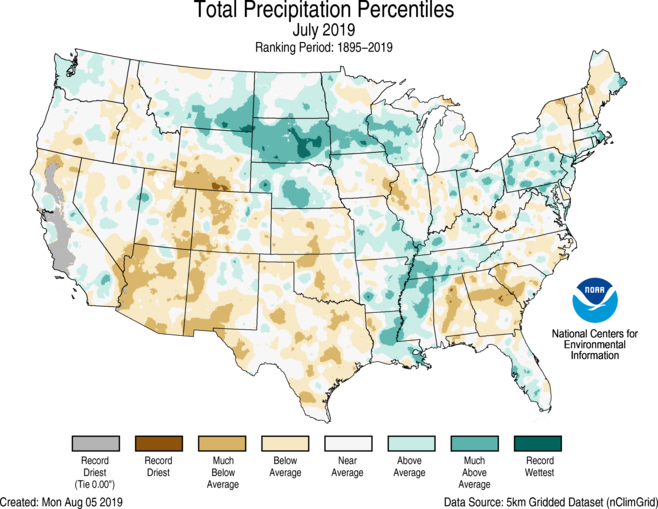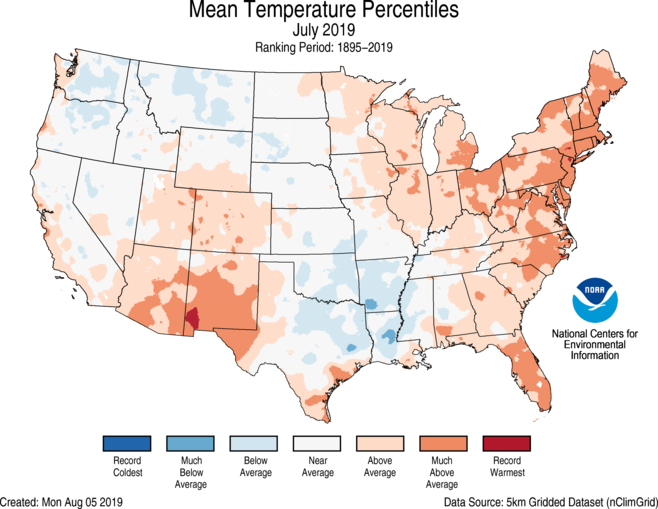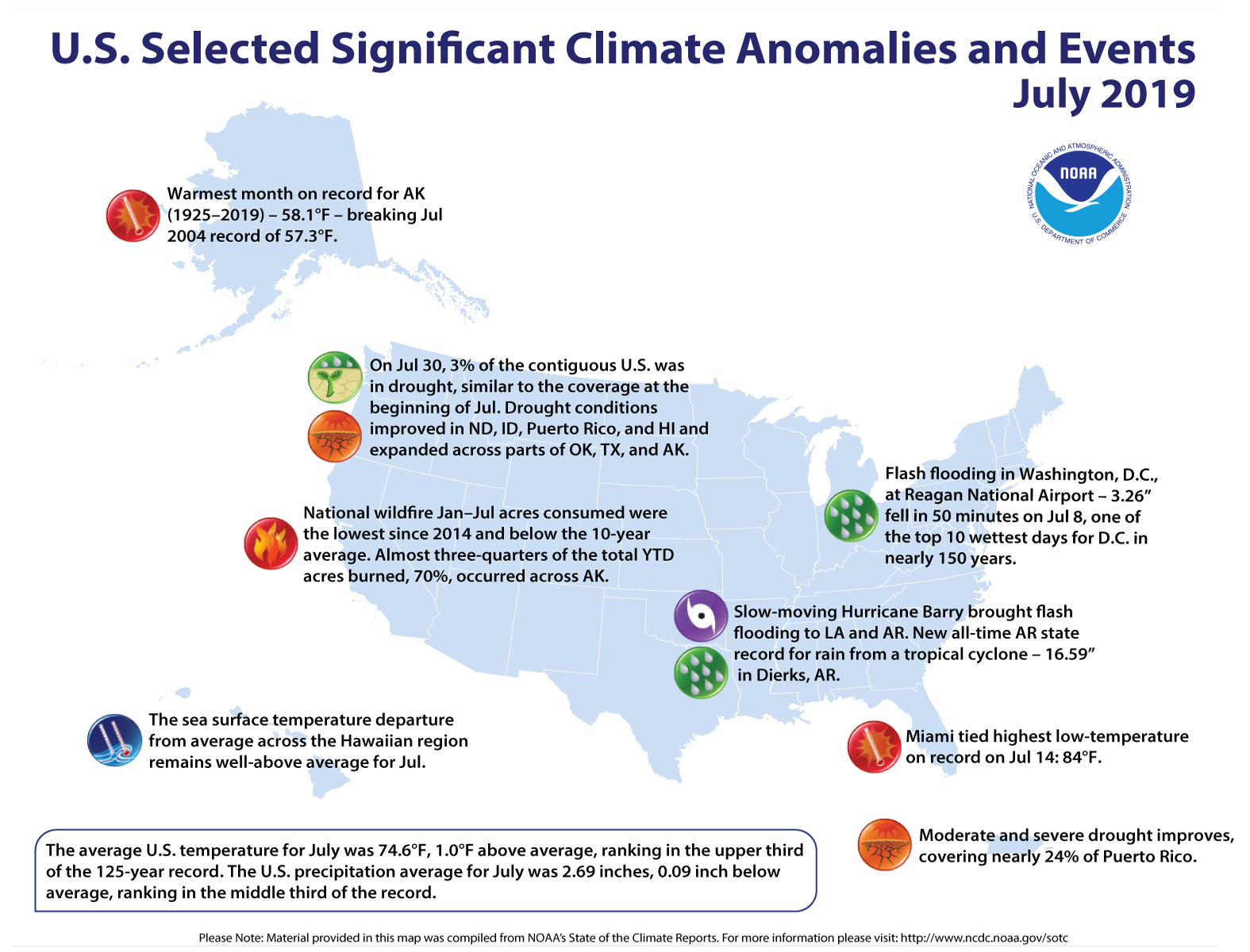July U.S. Climate Recap - Alaska See Hottest Month on Record
Climate by the numbers
July 2019 and last 12-month period
Wet conditions spanning the last 12 months (August 2018 through July 2019) set a new precipitation record for this period, with an average of 37.73 inches — 7.78 inches above average — according to scientists at NOAA’s National Centers for Environmental Information.

The average precipitation for July was 2.69 inches (0.09 of an inch below average), which ranked in the middle third of the 125-year record. Wetter conditions were found across the northern Plains, much of the Mississippi and Ohio River valleys and parts of the Northeast.

The average temperature for July across the contiguous U.S. was 74.6 degrees F (1.0 degree above the 20th-century average). Alaska marked its hottest July and hottest month on record with an average temperature of 58.1 degrees (5.4 degrees above average). The rest of the U.S. experienced temperatures that fell in the upper third of the 125-year record.

Year to date | January through July
The contiguous U.S. had its wettest year to date (January through July) on record. The average rainfall for was 21.79 inches, 3.70 inches above average.
For the year to date, the national temperature was 51.5 degrees F (0.2 degrees F above average), which ranked in the middle third of the historical record.

More highlights from the report
- Heat stretched across the country: Seventeen states, from the U.S. Southwest to New England, had July temperatures that were much above average.
- Barry brought record rainfall: Hurricane Barry dropped a total of 16.59 inches in Dierks, Arkansas, setting a state record for the most precipitation from a tropical system. The storm brought flooding to Arkansas and Louisiana.
- Drought remained steady: July ended with 3% of the contiguous U.S. in drought, similar to what was reported at the beginning of the month.